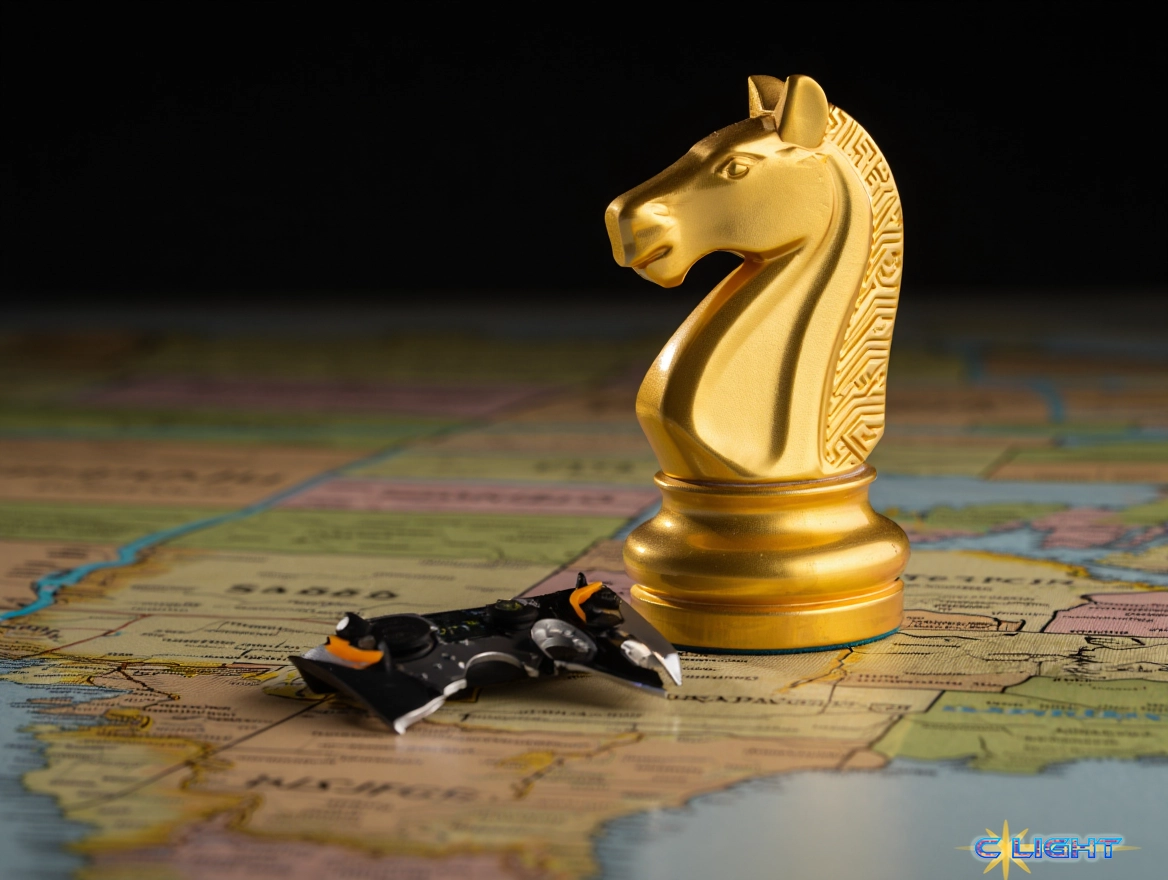5 minutes read time.
In a landmark deal that sends shockwaves through the worlds of finance, technology, and global culture, video game behemoth Electronic Arts (EA) is being acquired by a consortium of investors for a staggering $55 billion. This transaction, the largest leveraged buyout in history, will take one of the most iconic American entertainment companies private, saddling it with billions in new debt. But the deal is more than just a financial maneuver; at its heart is Saudi Arabia’s sovereign wealth fund, the Public Investment Fund (PIF), a financial juggernaut with a voracious appetite for Western cultural assets and deep, personal, and profoundly profitable ties to the Trump administration. The acquisition of EA is a story of “culture-washing,” but it is also a story of a glaring conflict of interest, where the President’s son-in-law, Jared Kushner, stands to personally profit from a deal that his father-in-law’s administration will be tasked with approving.
## The Kushner Connection: A Conflict of Interest Hiding in Plain Sight
While the deal is being led by private equity firm Silver Lake and the Saudi PIF, a key partner in the consortium is Affinity Partners, the private equity firm founded by Jared Kushner after he left the White House. Kushner’s firm was famously seeded with a $2 billion investment from the very same Saudi PIF that is now his partner in the EA acquisition. This arrangement, which was reportedly approved by Crown Prince Mohammed bin Salman over the objections of the PIF’s own screening panel, has long been criticized as a blatant case of “pay-to-play,” a reward for Kushner’s unwavering support for the Saudi regime during his time as a senior White House advisor.
Now, that investment comes full circle. Kushner is using Saudi money to partner with the Saudis in a deal that will make him extraordinarily wealthy. While the exact stake his firm is taking is not public, the management fees alone on a transaction of this size are astronomical. This creates a breathtakingly cynical loop: the Saudi government invests in the President’s son-in-law’s firm, that firm then partners with the Saudis on a massive deal, and the entire transaction must be approved by a U.S. government committee—the Committee on Foreign Investment (CFIUS)—overseen by the President himself. As one analyst noted, the odds that a board of Trump appointees would reject a deal that personally enriches the President’s family are functionally zero.
While the stories may have been buried, the facts are clear. This isn’t just a business deal; it’s a glaring conflict of interest that blurs the line between public service and personal enrichment, with a major American cultural institution caught in the middle. There is no evidence at this time of direct financial involvement from Donald Trump Jr., though the Trump Organization has its own extensive business ties to Saudi-backed real estate ventures.
## Saudi Arabia’s “Soft Power” Play
For the Saudi PIF, the acquisition of EA is the crown jewel in its ambitious “sportswashing” and “culture-washing” strategy. The Kingdom has poured hundreds of billions into industries with outsized male audiences, from bankrolling LIV Golf to investing in motorsports and esports. The goal is to use the global appeal of sports and entertainment to launder the regime’s abysmal record on human rights and repression. The acquisition of EA, the maker of wildly popular sports franchises like Madden NFL and EA Sports FC, is a perfect strategic fit.
## The Future of Gaming: Profits, Layoffs, and Censorship
For the millions of gamers who play EA’s titles, the shift to a private company, saddled with roughly $20 billion in new debt and beholden to a foreign authoritarian government, will likely have profound consequences. Analysts predict the new ownership will be forced to service this massive debt by cutting costs, which could mean significant layoffs, the closure of less profitable studios, and the selling off of beloved intellectual property.
The Saudi involvement also raises troubling questions about data privacy and creative censorship. There are significant concerns that the Saudi regime’s stringent social positions, particularly its criminalization of same-sex relationships, could lead to content-based meddling in future games. The potential for a franchise like The Sims, known for its inclusiveness, to have its LGBTQIA-friendly content stripped away is seen by many as the “canary in the coal mine” for this kind of creative interference. While private ownership could theoretically free EA to make long-term creative bets, the immense debt and the influence of a sovereign wealth fund with a clear political and social agenda make that a remote possibility.
For the millions of gamers who play EA’s titles, the shift from a public company to a private one, saddled with roughly $20 billion in new debt, will likely have profound consequences. Analysts predict the new ownership will be forced to service this massive debt by cutting costs, which could mean significant layoffs, the closure of less profitable studios, and the selling off of beloved intellectual property. Studios like BioWare, the creators of epic single-player narratives like Mass Effect and Dragon Age, are seen as particularly at risk in an environment that will likely prioritize the predictable, recurring revenue of live-service games and microtransactions.
This video provides a good overview of the financial structure of the deal and the key players involved, including Silver Lake, the Saudi PIF, and Jared Kushner’s Affinity Partners.
Discover more from Clight Morning Analysis
Subscribe to get the latest posts sent to your email.








